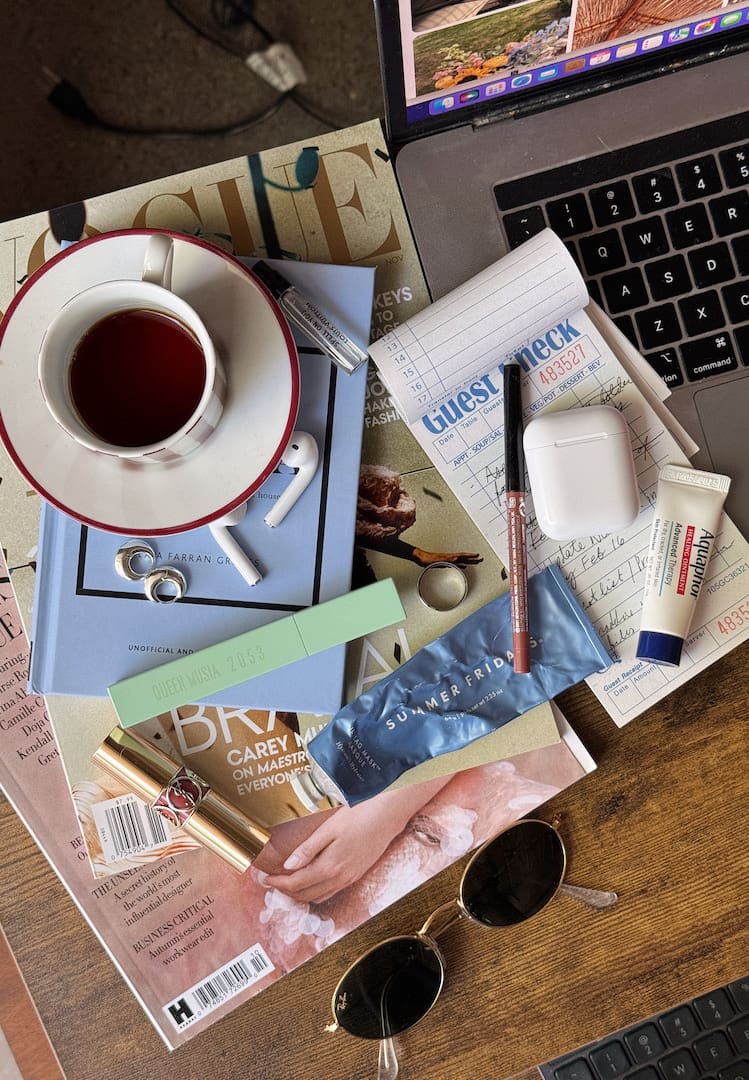A counsellor on how to set boundaries with your family this holiday season
Words by Jackie Zhou
“Making change takes a lot of effort.”
Boundaries are important in our everyday lives, but committing to them can be difficult if your family has never honoured them. For many folks, the holiday season is comparatively more stress-inducing and triggering than any other time of the year. Being queer and Chinese, a lot of time with my family can often turn me into quite the Grinch.
Sensory overload, the pressure of social expectations and streams of invasive comments on weight, fashion choices, love life and career can leave me overwhelmed with negative emotions. Sometimes, I need my own quiet space away from family.
For more on navigating the holidays, check out our Life section.
Fortunately, I was able to speak with Tatiana Kunwongse from Queen of Cups Counselling to find out how to set personal boundaries with family. Read on to find out how you can slay the holidays, minus the cyclical family-induced dread.
Hi Tatiana, who are you and what do you do?
I’m Tatiana, and I was working at Monash as a student support officer for other Masters of Counselling students… I [chose] counselling because I saw first-hand how other people’s emotional issues affect others. You’re never just affecting yourself – it’s a chain. And eventually, it was that interest in the domino effect that got me into counselling.
As I started my Master of Counselling, I got deeper into tarot reading. So the queen of cups… she’s this figure of understanding your intuition and emotions, someone who is very in touch with her internal world. So when I thought of the kind of counselling practice I wanted to create, I was hoping to create a space where people can get to know their feelings a little better.
How can people prepare themselves for family gatherings in the holidays?
It’s really easy to get lost within family dynamics because the sense of self is not so contained… [especially] within Asian family dynamics. The best thing you can really do for yourself before you see your family is to… reflect on which things actually matter to you.
… A boundary is essentially knowing where your identity begins and ends and knowing where somebody else’s identity begins and ends. So if you can get clear on your [boundaries], that can help you from taking on somebody else’s baggage. As you take inventory of the values and issues that really matter to you, it’s also helpful to be reminded of your mental and emotional safety anchors.
Anchors are people, places, actions [and] objects that help you find grounding within yourself so that you are not swept away by other people’s disruptive energy. Anchors are quick and easily accessible, like a quiet cup of coffee in the morning, a song to put on at the end of the day, or a walk around the neighbourhood.
For queer people/POC especially, how can we set boundaries around family expectations on relationships?
Invasive comments can span all over the spectrum, from [family] inquiring about an ex-partner that you might have had before you realised you were queer, to them asking really tone-deaf questions about your queerness – it can mean them not even acknowledging this part of yourself.
I’m sure if you Google ‘how to set boundaries’, you’re gonna get a lot of stuff about being assertive. [But] sometimes it can backfire because conflict is so foreign to some families, they [can] take it so personally.
Be vague
If [being assertive is] too confronting for your family dynamic, it’s okay to just quietly tune out, like ‘quietly quitting’ the conversation. You can be as vague as you like, and you can be selective about the information that you share.
Give yourself space
Find a space that’s yours, and only yours. So whether that’s a diary… or your Notes app if physical space isn’t available to you, having that corner to yourself to really think about your thoughts is really helpful.
… When people say invasive comments about things we feel sensitive about, we tend to react, and the reaction can take us down a path that we might later regret. So when you physically or mentally remove yourself from the situation, you have a little bit of space to respond accordingly.
How can people establish boundaries on comments about physical appearance?
Ask about their intentions
Question why it is that they’re asking you this question in the first place. What is the intention behind their questioning? Once you understand their intention, it gets a little bit easier to figure out how to navigate because it can be really well-intentioned, or it can be really malicious.
Turn the question or comment back on them
Personally speaking, I found that I shut it down just by turning the question back on them. Asking them something like, “Why is it so important to you? Why do you care so much?” They might something like, “Well, I just care about your health”. And then you can respond, “Oh no, I’m pretty healthy. I went to the doctor”. If you question it, they might actually hear how absurd their comments and questions are.
Remember your values
Remember to come back to your own health and self-image goals. Are you happy with your own body? Maybe you’re not 100 per cent happy at the moment, but… other people’s thoughts and opinions don’t need to interfere with your own journey. A great mantra to repeat to yourself is “Not my circus, not my monkeys”.
Do you have any advice for dealing with triggers within family dynamics?
Making change takes a lot of effort, and it requires being very truthful to yourself [and] a change in the status quo of the family dynamic. Consciously or unconsciously, family members might be very resistant to this change because they’re used to the way things are… when a person’s role begins to shift from the family, they might not know what to do with themselves.
So you might want to ask yourself, ‘Do I want to instigate change and deal with the potential consequences, or do I just want to coast? What would safe change look like?’ That’s a question that looks different for every family.
Do you have any tips for managing family gatherings that dig up past trauma?
For more tips on how to set holiday boundaries, try this.










